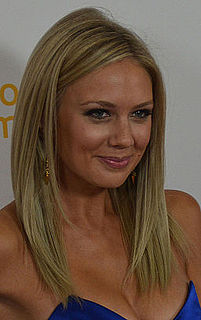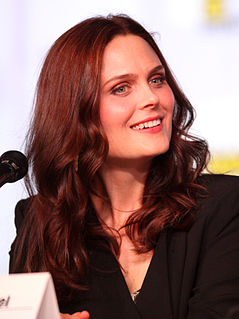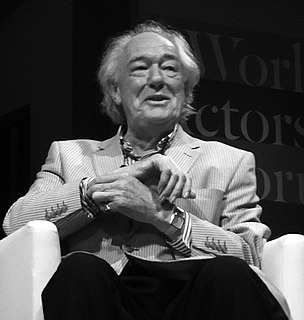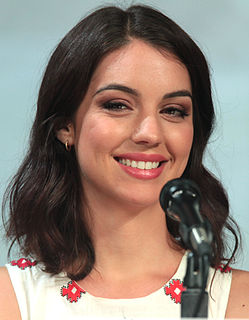A Quote by Nicolas Winding Refn
I've stopped showing actors what to actually do. I rather just talk to them about it. Then I usually play music. That's a great way to convey inner emotion, bring the power of style and acting together. That's really what it is, very good acting without talking.
Related Quotes
We have so much access to one another through technology and everything else, that we're very much used to people being real. When folks go on TV and they're basically acting - if they were good actors they'd be acting and paid for it for a living, but they're not good actors. When we see bad acting, it doesn't look like bad acting, it looks weird, and we are turned off by it. I'm not talking about anybody in particular, that's just politics right now. This generation, I feel like, has incredible bullshit detectors.
Period films to me are very often alienating to the audience. There's very often a formality. A staunchy quality to them that comes from the misenscene. It also comes from the performances of the actors, because they're acting Victorian which really means that they're just acting the way they've seen previous actors act Victorian.
I really just enjoy listening to talk [to John Hurt and Charlotte Rampling]... not even about acting or anything. It's interesting because I felt really connected to all these people very easily. They're all very open emotionally, like we're in the scene together, so you never feel like anyone's acting.
I took theatre and stuff in college, then I took a bunch of different acting classes here in L.A. Sometimes when I have a hard audition, I'll call my acting coach and he'll come help me. I actually get more nervous in acting class than I do at an actual audition. It's actually a really great way to get over your nerves.
But actually my dad is a very talented director and not just his use of shots and camera, but he's very good with actors and he knows acting well. It's great to see him do that and be really good at it and he's been doing it for a while and he certainly knows how to make movies, and little movies I guess for a television show, and he's going to come back in November to direct a second episode, which I'm really excited about.
Working with children is very different than the way in which I work with adults. I never tell the children the actual truth of the thing that I want them to act. Although children are really into play and play acting, and this is a major part of their existence, they never actually find the playing or acting of adults credible.
The most significant piece of advice my father gave me early on about acting was, don't get caught acting. Really believe in what you're doing and then commit to it. Even if it feels uncomfortable, even if you feel that you're gonna look like an ass. It's all acting, but find the truth in a moment as opposed to just pretending you have and rather than trying to act your way out of it.
I think there's a lot of mythos about what's required in acting. The way that actors talk about acting is generally quite punishing, and I think actors want to put forward the idea that they do all of this work because, you know, it's a post-De Niro world, when, largely, in fact, it's almost never true.
I’ve never agreed with the conventional wisdom that ‘actors are great liars.’ If more people understood the acting process, the goals of good actors, the conventional wisdom would be ‘actors are terrible liars,’ because only bad actors lie on the job. The good ones hate fakery and avoid manufactured emotion at all costs. Any script is enough of a lie anyway. (What experience does any actor have with flying a spacecraft? Killing someone?) What’s called for, what actors are hired for, is to bring reality to the arbitrary.
When I'm in the studio, I write the music, I play the different instruments, I produce it, I arrange it, and it's a self-indulgent exercise. It's the way I make my music. And when I'm acting, I get to leave myself behind, which is a relief. I get to collaborate with a director; I respect the director's medium and all the actors and actresses. So at the end of the day, it's about a character and it's about a director's vision. It's a really good balance for being so intense and alone in my personal process of making music.






































